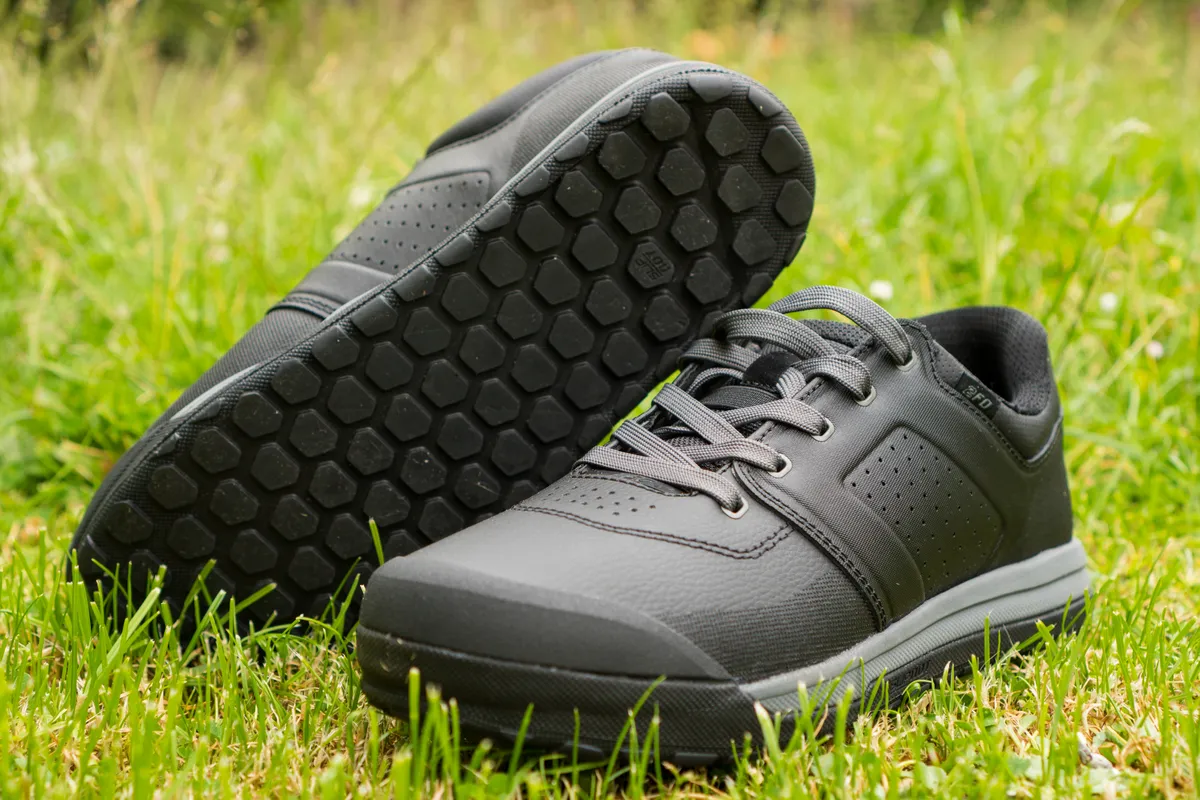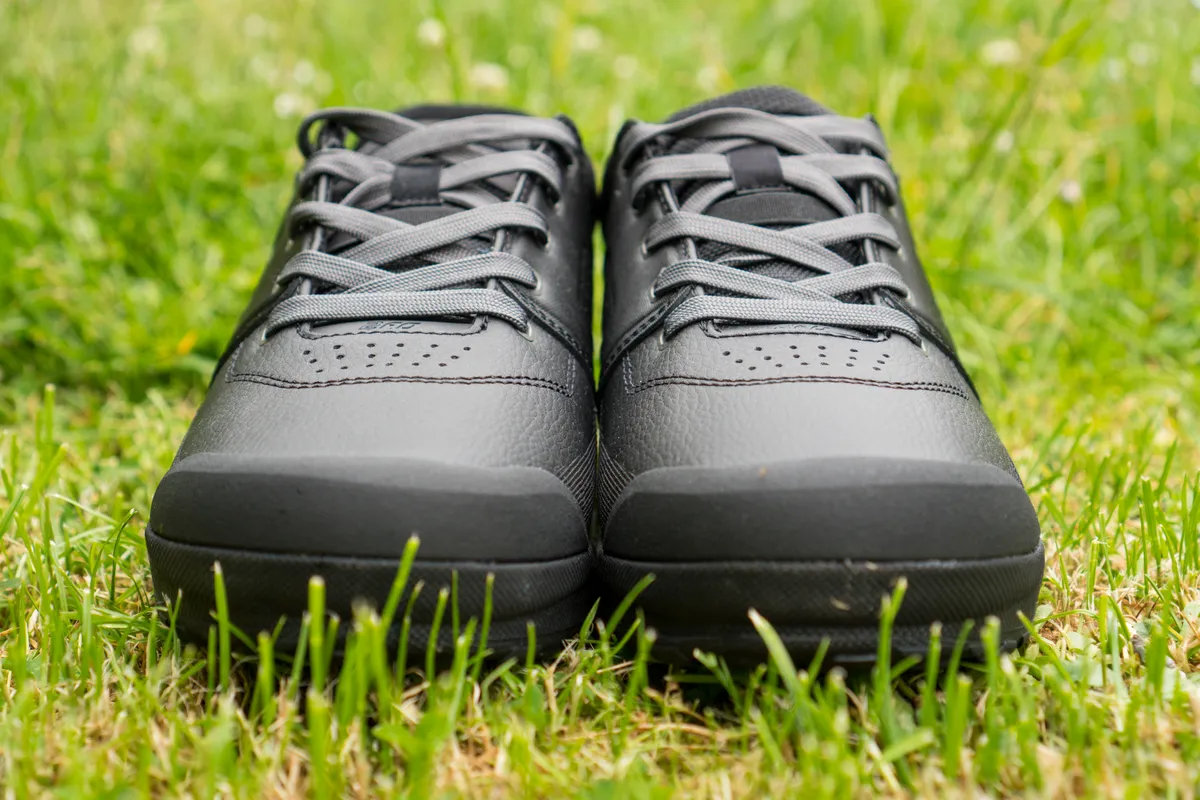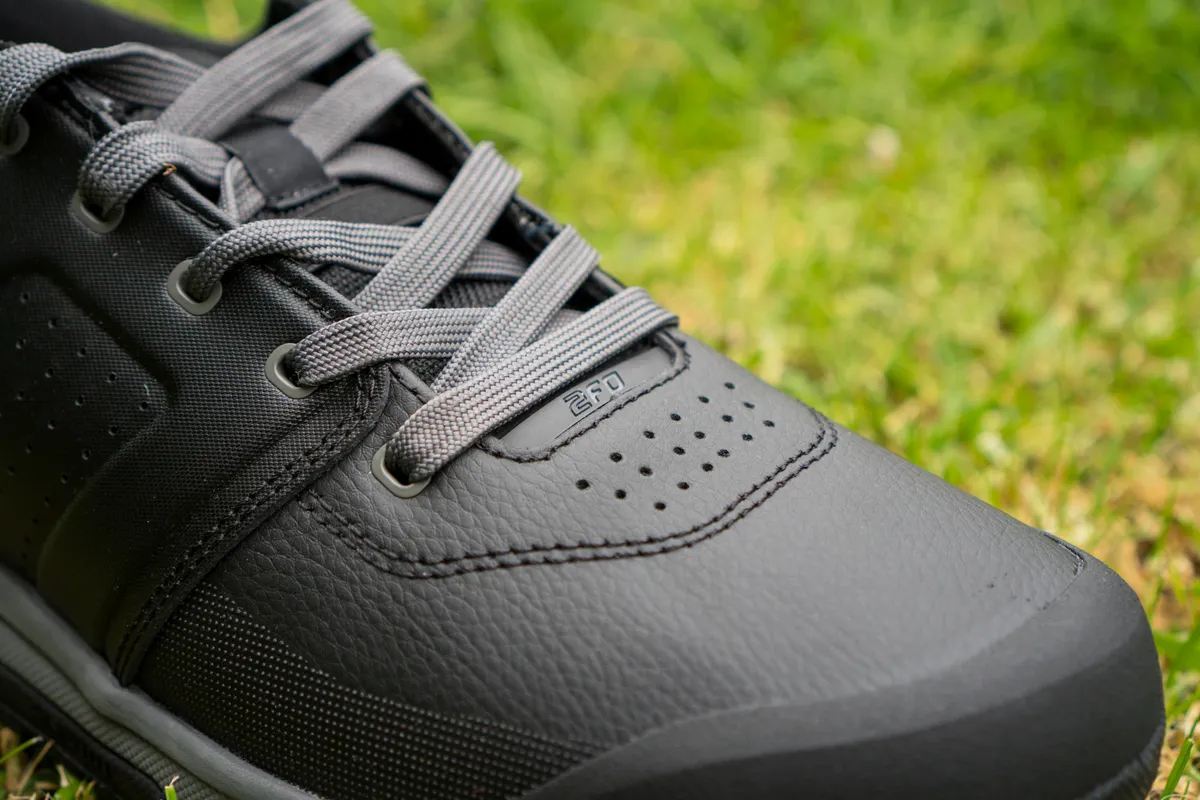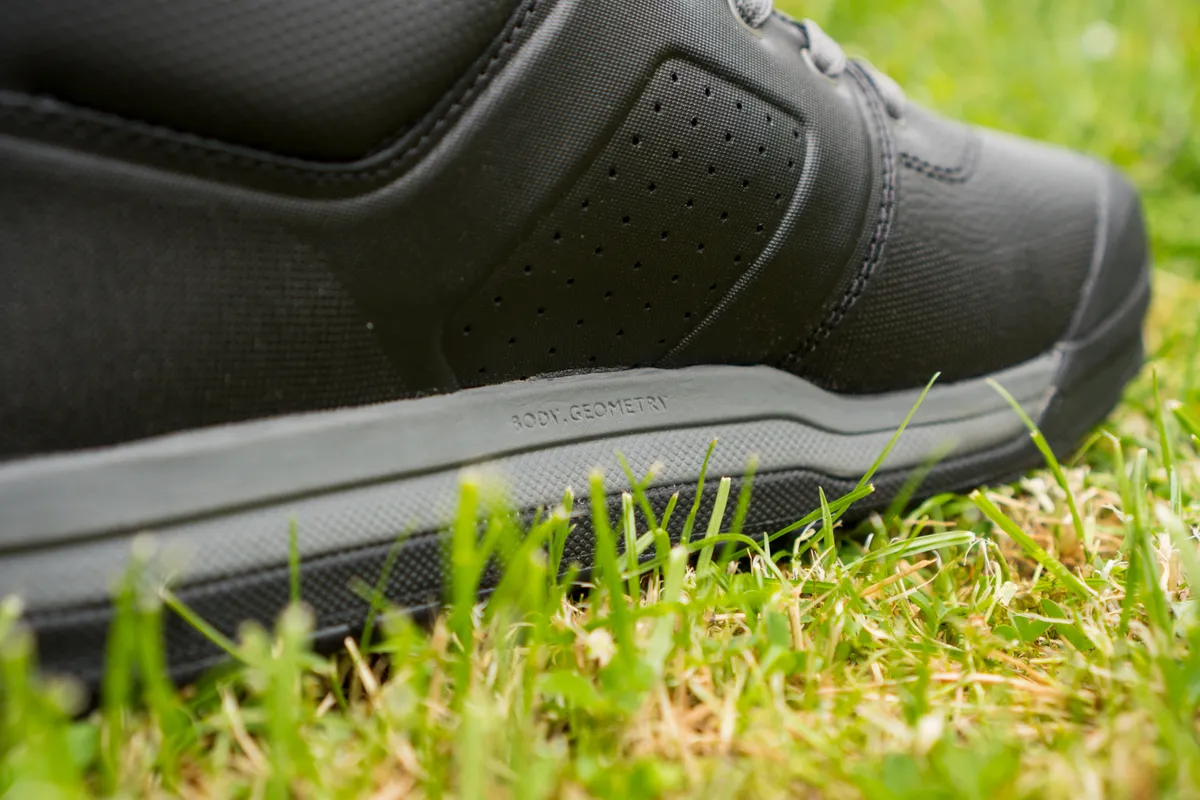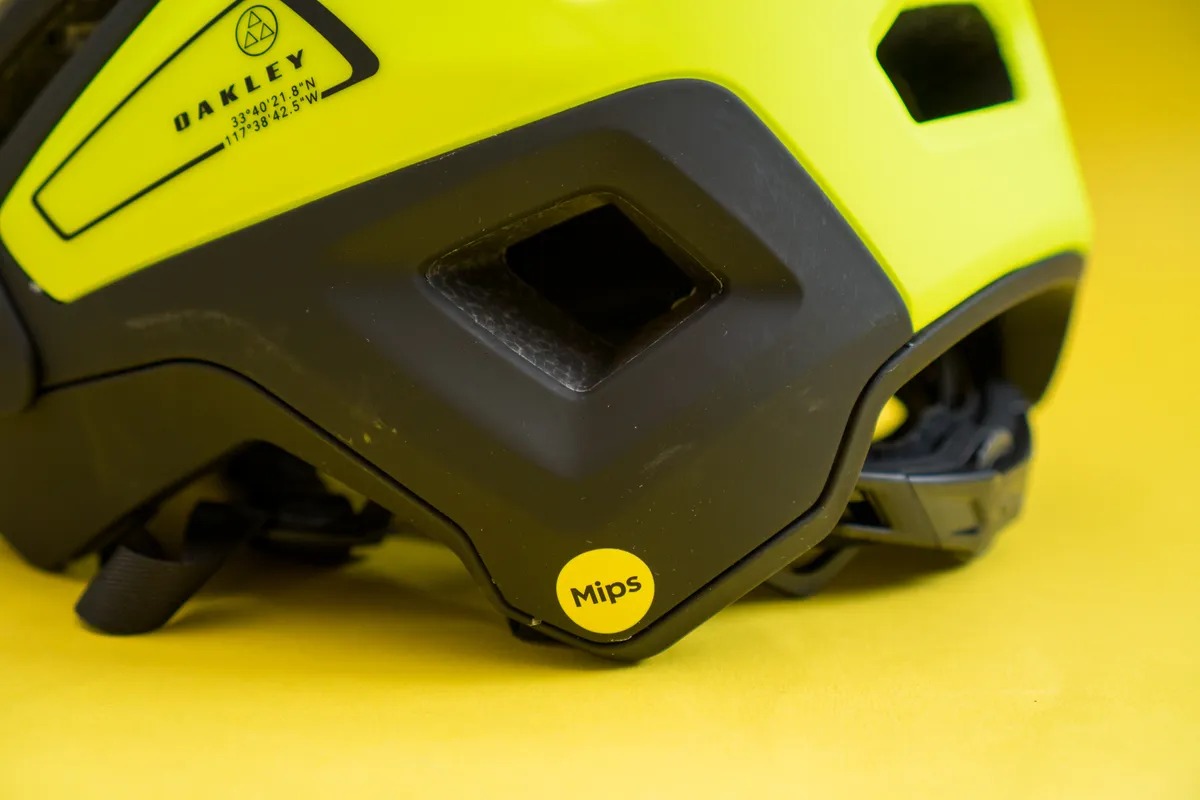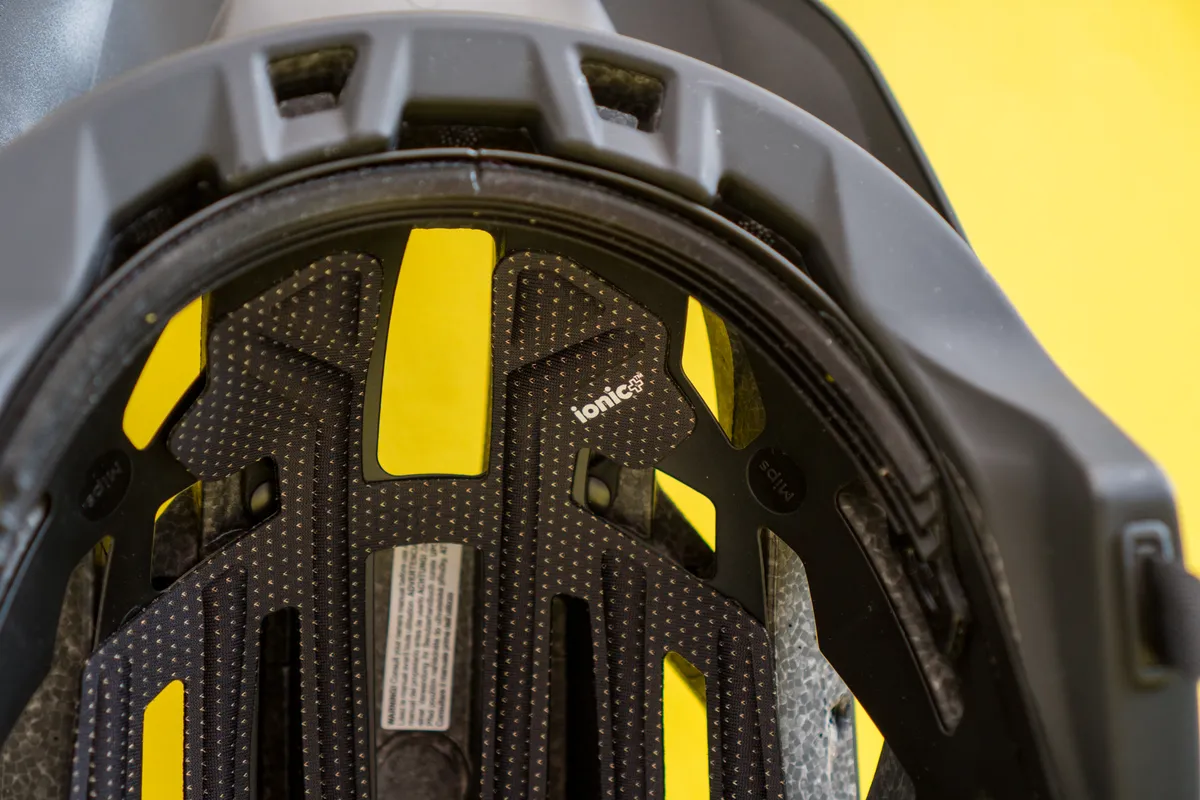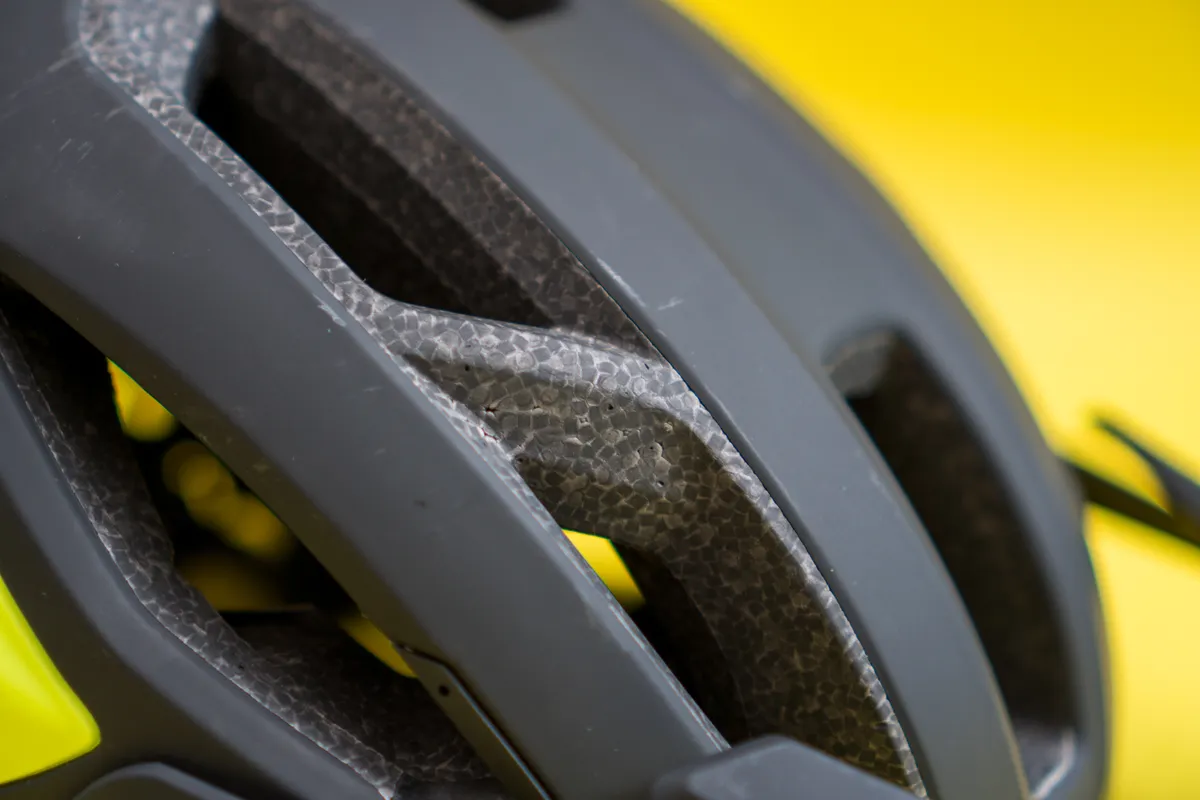Welcome to First Look Friday… what a week it has been.
With the Tour De France in full swing, it's proving to be one of the most entertaining editions so far. We won't blame you if you want to skip work and tune in to the live streams so you don't miss any of the action.
Here at BikeRadar, we've brought you the most important Tour content this week, with Wednesday's pavé-strewn stage standing out.
Tech clearly plays a massive part in how fast a rider can go, and we were expecting the Trek-Segafredo team to ride the all-new Trek Domane on the cobbled stage.
Instead, the team opted for the IsoFlow-equipped Trek Madone, with Belgian rider Jasper Stuyven finishing the stage in sixth place.
A notable mention goes out to Peter Sagan's mechanically shifting Dura-Ace bike, a spec choice he made specifically for stage five. Unfortunately, a crash took him out of contention.
Unlike Sagan, you can now ride Di2 Shimano gearing at 105 level, and we've listed 20 bikes with Shimano's 105 Di2 electronic groupset…
On the theme of spec choices, we got a unique backstage insight with the Israel-PremierTech team's Dr. Ciarán O’Grady.
We also asked the pressing question: Who is the tallest Tour de France cyclist, and why does it matter? Of course the answer to that question is 'aero'.
Elsewhere, Simon von Bromley took a deep dive into Taco van der Hoorn's aero-optimised Cube Litening C:68X TE setup.
In other aero news, make sure you read our article on Giant's all-new Propel aero road bike.
Much less speedy was George Scott's look at 10 of the best city bikes on the streets of Copenhagen.
And if you're after off-road thrills, check out our reasonably priced hardtail versus full-suspension article, where we help you decide the best type of mountain bike to buy.
Finally, we brought you news of Pirelli's new Cinturato Gravel RC tyres; maybe some of the Tour riders should have fitted them to their race bikes for stage five…
Specialized 2FO DH Flat shoes
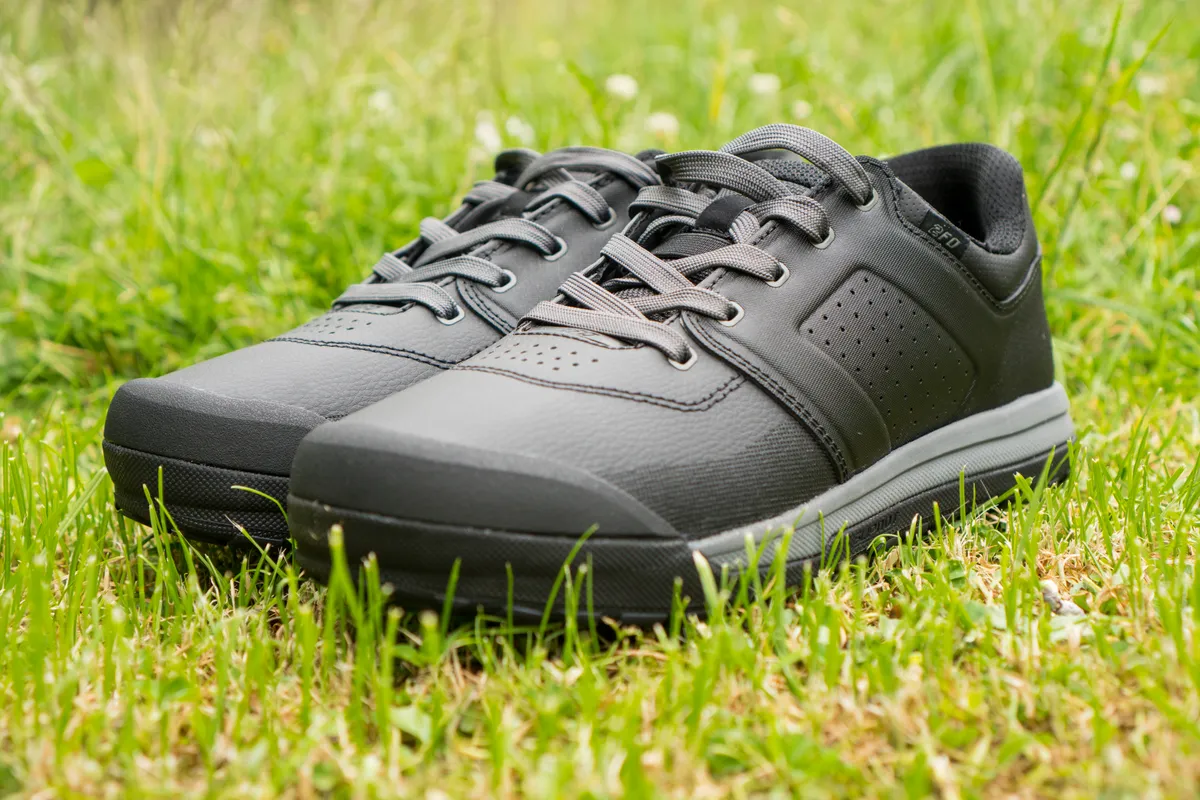
Toppling Five Ten from its lofty best mountain bike shoes in the business pedestal seems to be, for quite a few brands, the equivalent of reverse-engineering the Enigma machine.
It appears the secret formula for flat-pedal grip, stability and comfort is rather hard to crack.
Shouting proudly from the rooftops, "hold my beer" is Specialized with its 2FO DH Flat shoes.
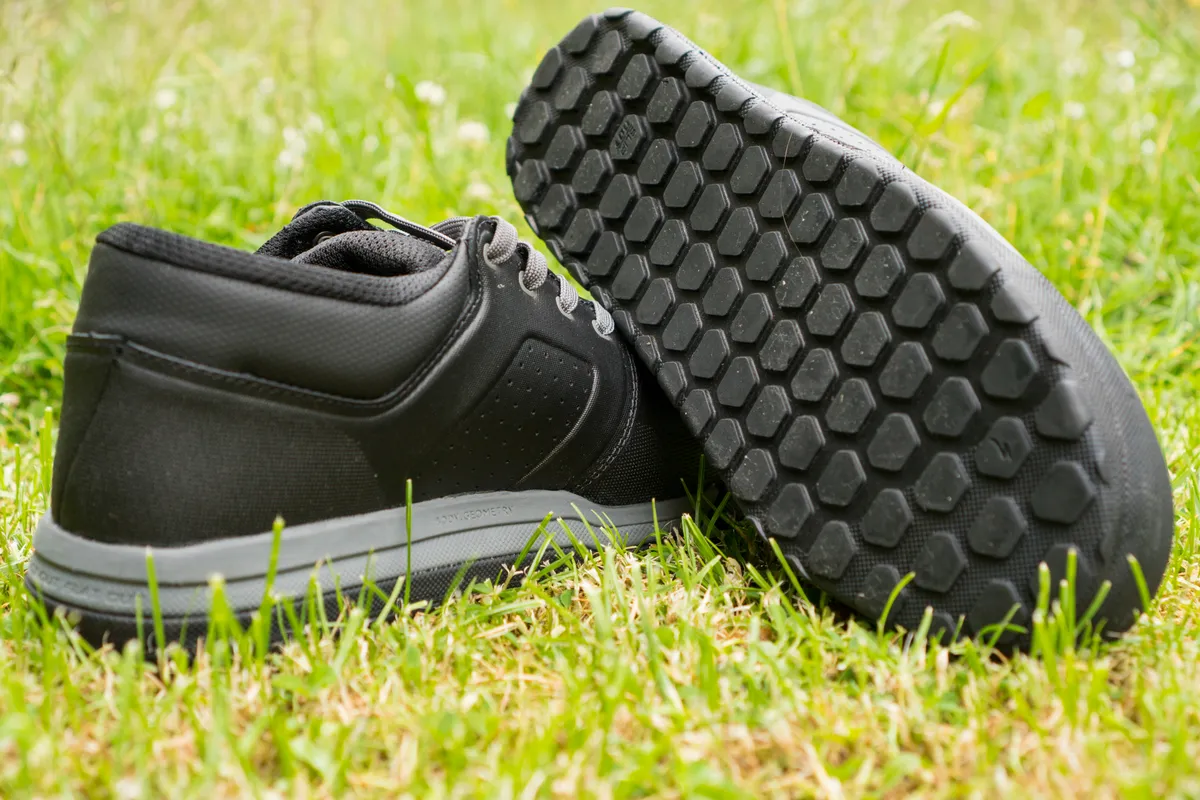
The sacred trifecta of Body Geometry features, which include a longitudinal arch, metatarsal button and the Varus wedge, are all claimed to work in harmony to improve pedalling efficiency, optimise your lower-limb alignment and, according to the brand, reduce injuries.
Combine these science-based features with a reinforced upper for protection (giving an 830g weight for a pair of EU42s), a hydrophobic construction to reduce drying time and a cushioned midsole, and only one final piece of the shoe-based puzzle remains: its outsole.
In the case of the 2FO DH Flat shoes, it's made from Specialized's SlipNot ST rubber that is claimed to offer "unsurpassed flat-pedal grip and connection".
Although I've read similar claims from brands many times before, I have it on very good authority these 2FO kicks are as good as shoes equipped with Five Ten Stealth soles.
First impressions and an unscientific fingernail squish of the rubber reveal this may well be true, so keep tuned for a full review soon.
- £145 / $160 / AU$250
Oakley DRT3 MIPS helmet
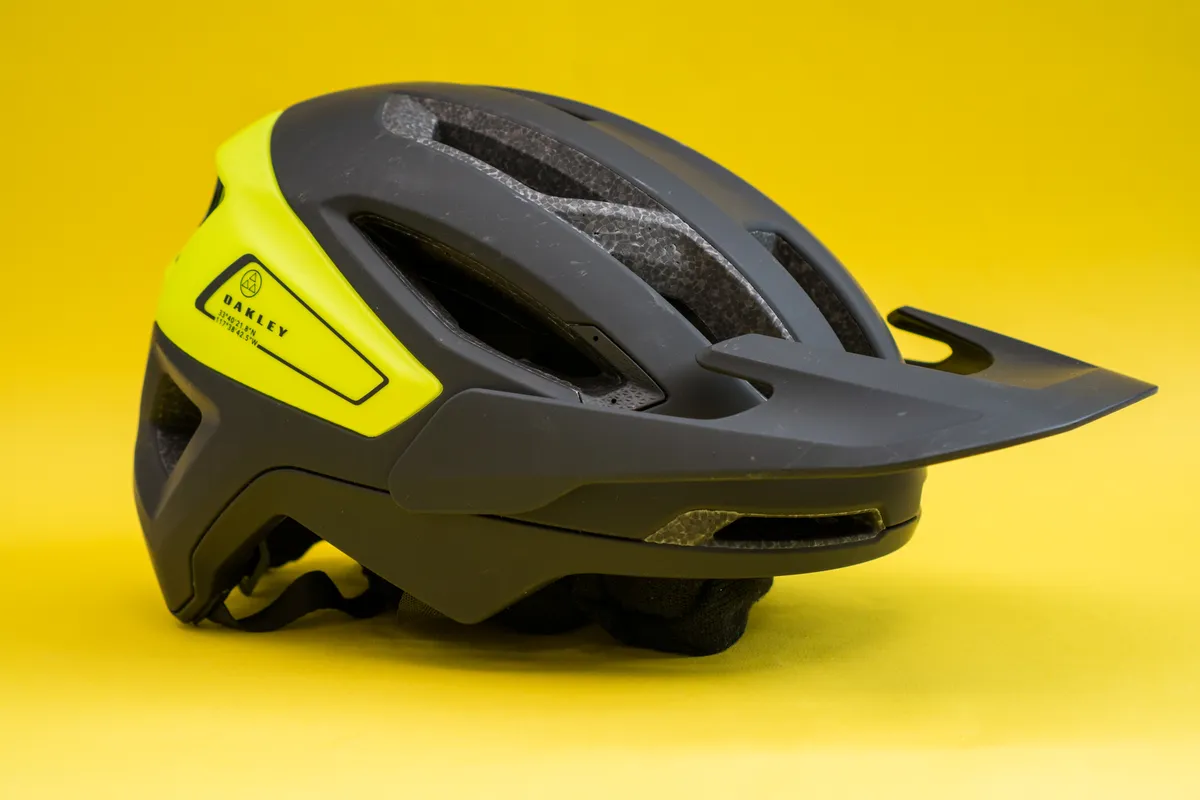
Oakley's DRT3 MIPS helmet is a more affordable version of the brand's range-topping DRT5.
In reducing its cost to £110 from £170 (DRT5), the DRT3 forgoes some of the features of the top-notch lid.
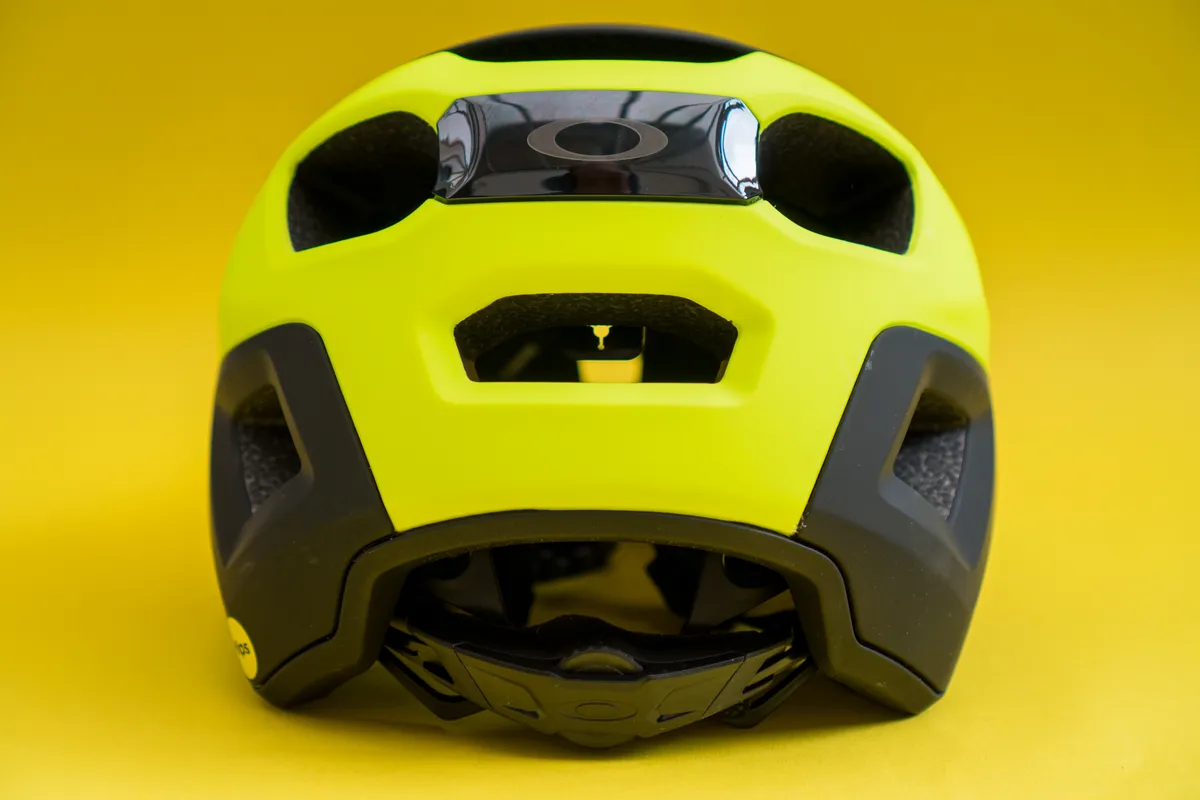
The most notable omission is the 'Eyewear Dock'.
To the layman, these are small clips on the rear of the helmet designed to securely hold the arms of your glasses for storage.
Instead, the DRT3 gets in-vent glasses storage on the front of the helmet, blessed with 'Unobtanium' grippers to keep your specs in place.
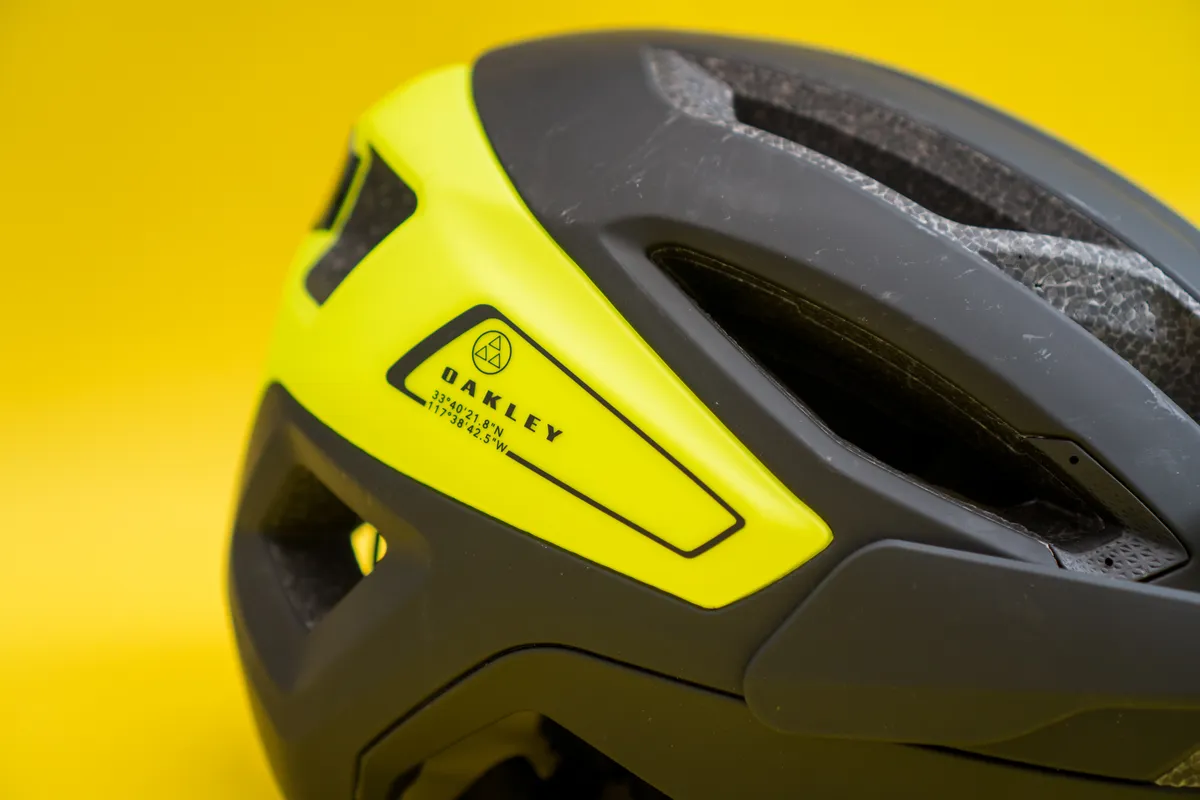
We won't blame you if you're getting fired up on 'Unobtanium' and 'Eyewear Docks', but keep some of that enthusiasm left in the tank; the DRT3 promises more.
It features a MIPS rotational impact protection liner, an adjustable visor and a nifty silicone sweat guard on its internal front lip to reduce the chances of saline secretions pouring down your face.
The height-adjustable cradle wraps the entire circumference of the wearer's head, where a dial (instead of a BOA-branded system on the DRT5) can be used to tune fit.
The DRT3 – despite costing less than its bigger-figured sibling – is, nevertheless, feature-packed and intended to strike a good balance between price, weight (367g, medium size) and features.
The yellow and black wasp- or bee-like colour scheme will surely appeal to insect fanatics, to boot!
- £110
Cannondale TrailShroom grips
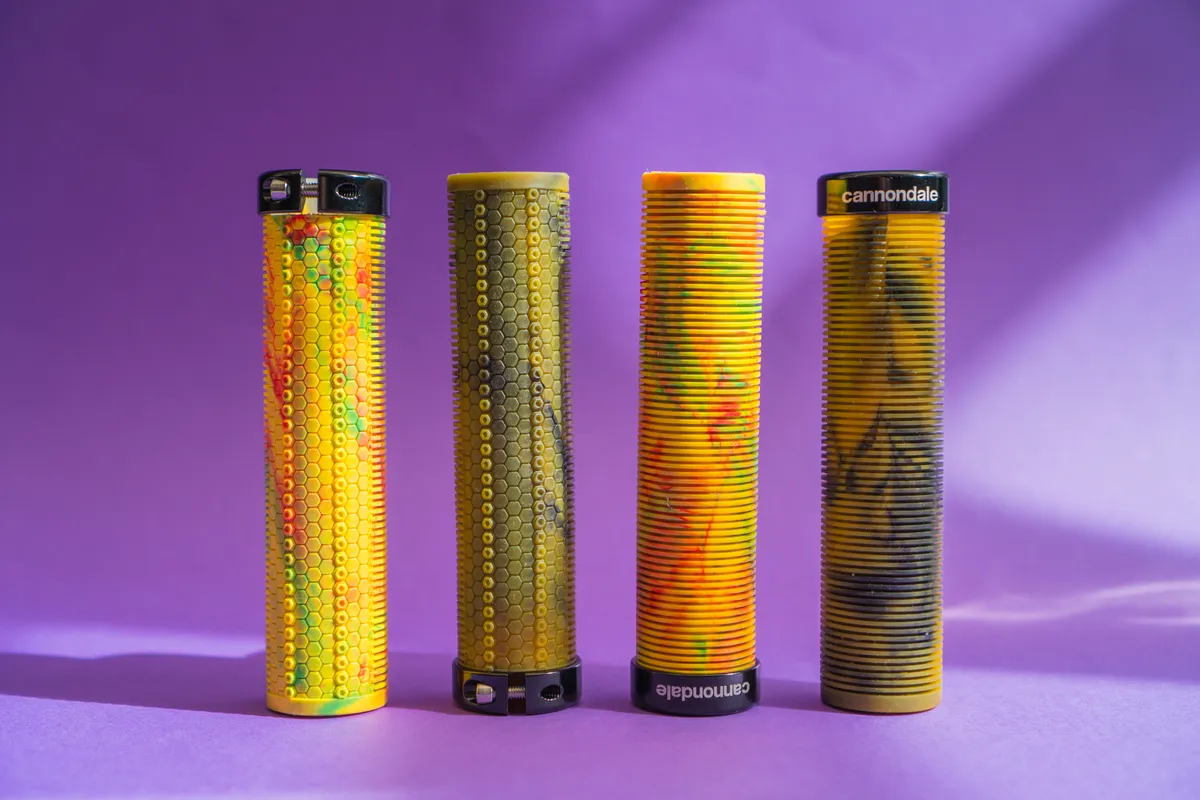
"The king is dead, long live the king!"
That's exactly what I said when I discovered the discontinued Fabric FunGuy grips have been rebranded as Cannondale TrailShrooms.
Although I've spoken about the FunGuys multiple times on BikeRadar (here, here and here to name a few), because they've now been re-released as TrailShrooms I couldn't resist putting them in this edition of First Look Friday.
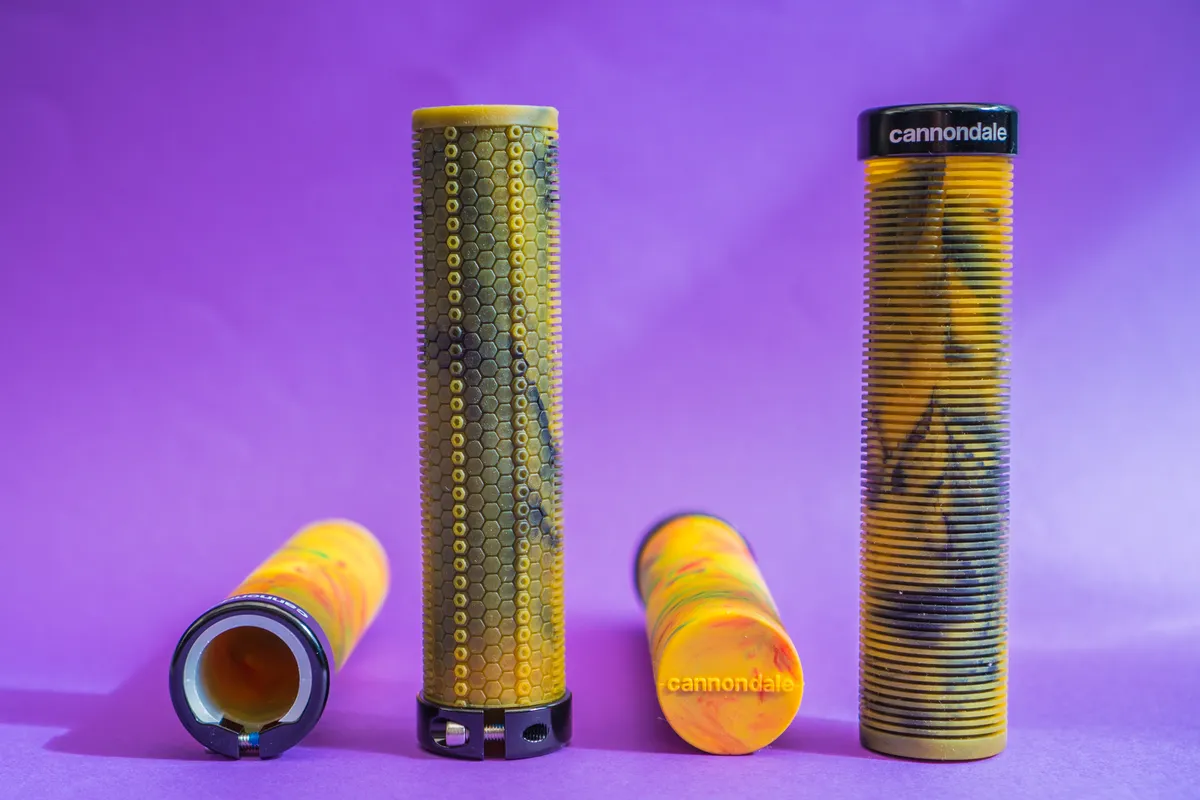
What do I like about them so much?
Well, they feel soft and squishy, but not so much that the trail is numbed or overly insulated.
Their 31mm diameter seems to hit a sweet spot between too chunky and skinny, which is matched with a straight profile.
The single in-board lock-on ring keeps them clamped to the bars securely but, unlike grips with a double clamp, means they can twist and rotate slightly, helping reduce fatigue.
And because there's no external flange, lip or lock-on ring, you can hang the edge of your hand over the grip in comfort, as I like to do.
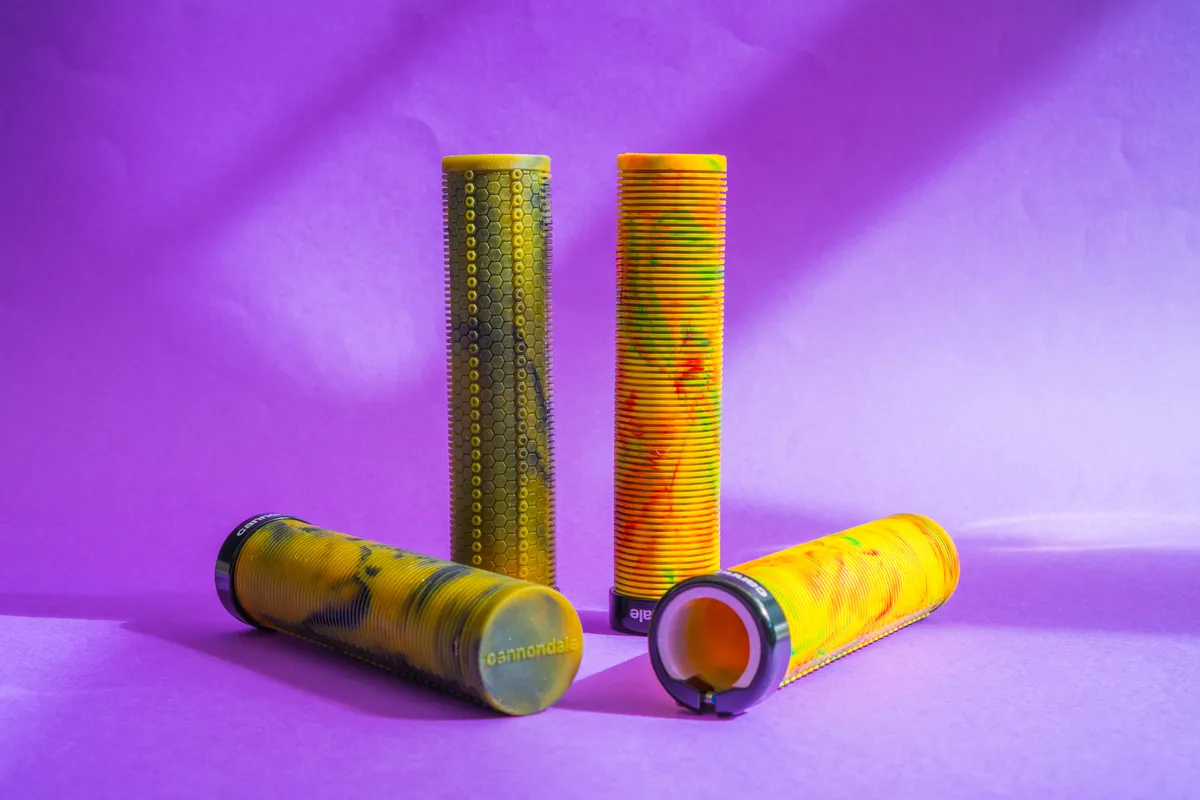
As the shiny cherry placed on the sweet icing that's on top of the delicious cake, the dual-pattern grip surface – with mushroom-like gills on one side and a 'Micro-Hex' pattern on the other – provides an excellent bike-hand interface in all weather conditions.
If you've not got a set of these and are in the market for some of the comfiest grips about, look no further.
Thanks to Cannondale, the FunGuy lives on in all but name and I couldn't be happier.
Long live the TrailShroom!
- £18 / $22 / AU$34
OneUp Components Carbon E-Bar handlebars

Electric mountain biking is no longer the elephant in the room (or trail centre car park), and neither should it be.
Bikes such as Specialized's S-Works Turbo Levo, my custom-built Marin Alpine Trail E2, or even the Nukeproof Megawatt 297 Factory that recently won our inaugural eMTB Bike of the Year test are all so good, that you'll have as much of a blast on the way to the trailhead as you do on the way back down.
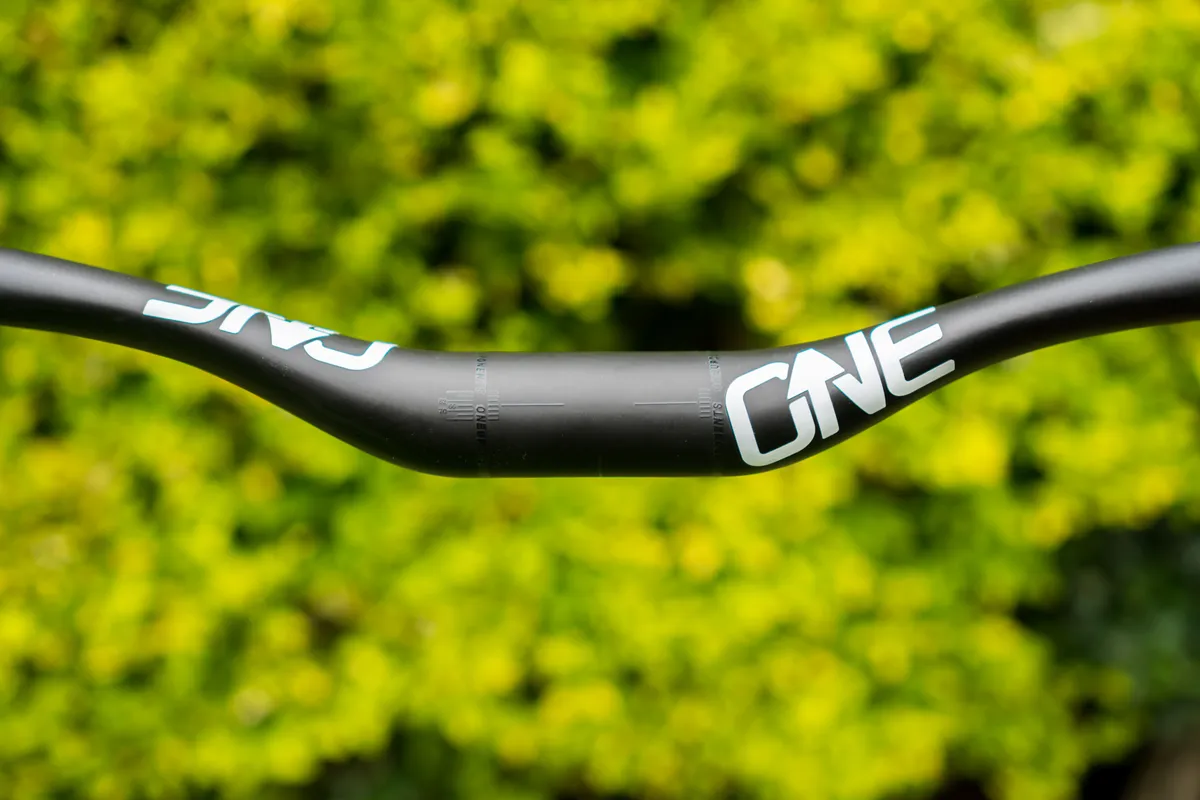
But some bits of electric bike design are still a bit clunky.
One of the worst things – in my eyes at least – in need of refinement is the mess of cables connecting displays, controllers and ECUs littering ebike handlebars.
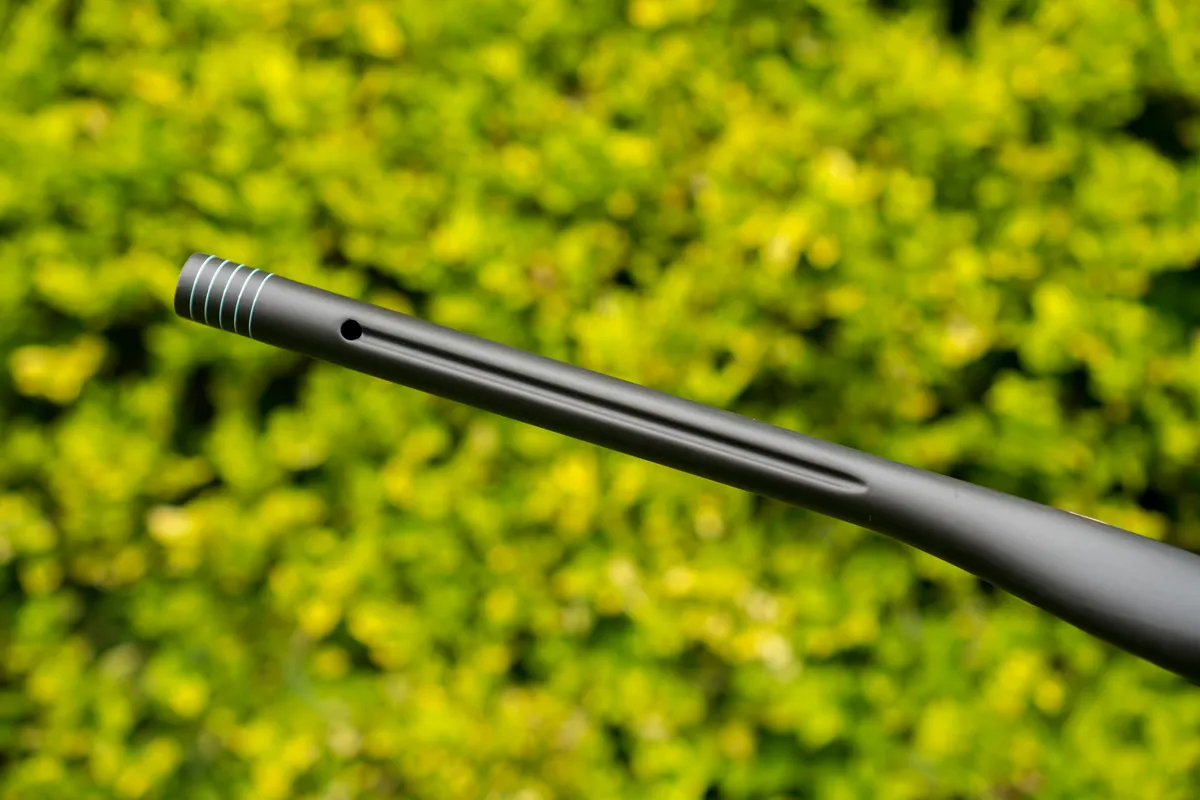
Unless a brand has developed its own ebike-compatible in-house bar, such as Canyon's ON range or the Santa Cruz Di2 bar found on the Heckler and Bullit that both route cables internally, the best solution we've come up with so far is using rubberised loops (or rubber bands, if you will). This keeps the cables firmly positioned along the external length of the bars.
However, that looks pretty poor.
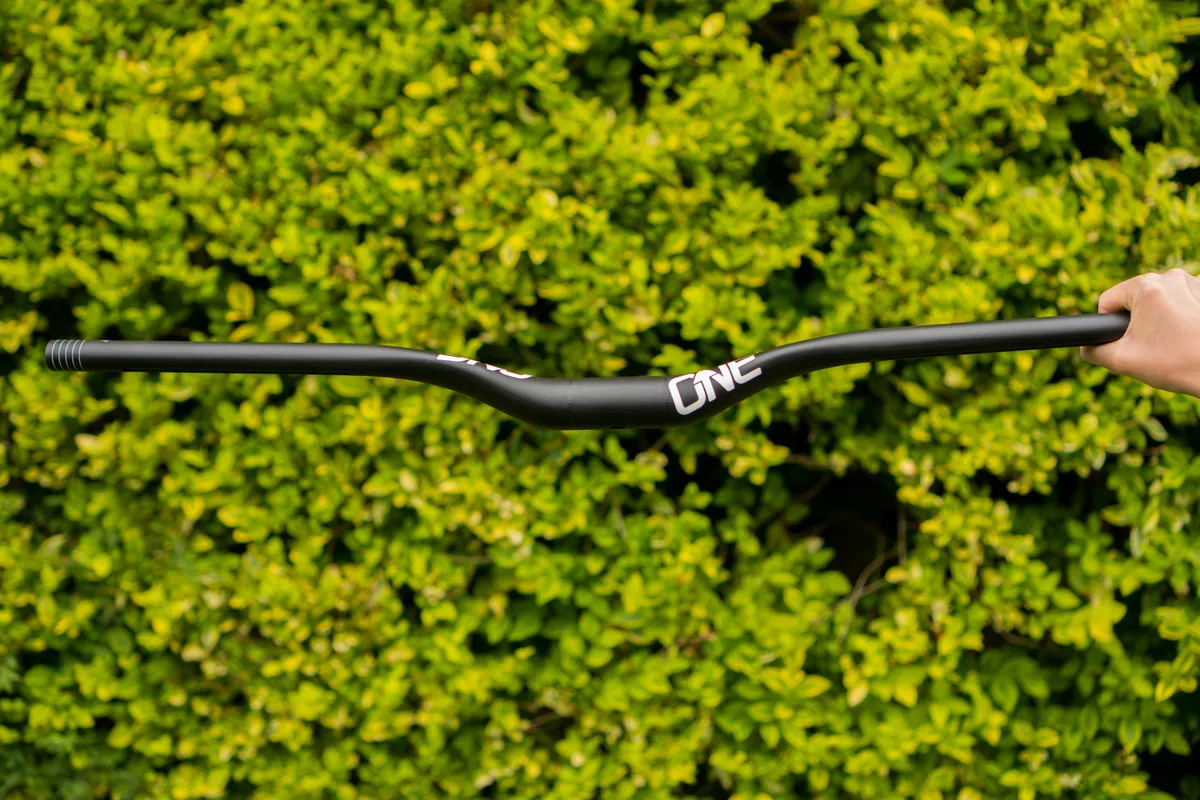
OneUp's Carbon Bar (dubbed one of the ultimate mountain bike upgrades by BikeRadar) is famed for its ability to absorb high-frequency vibrations and trail chatter thanks to in-built flex, However, it has now been resigned for ebikes, with cable routing and ports so those unsightly cables can pass internally.
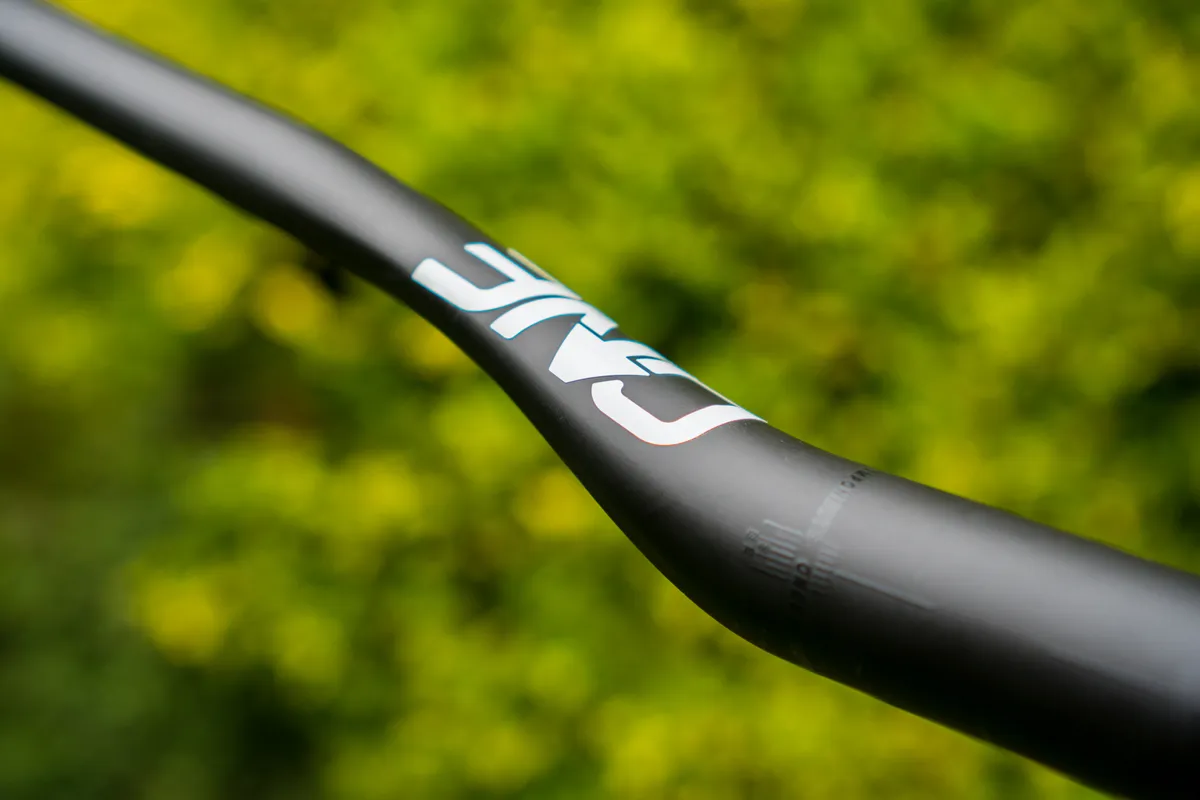
Along with the cable routing, the Canadian brand has upped compliance by 20 per cent – thanks to the 'pinched' sections where the bar rises – over competitors' bars, but they still pass the ASTM Cat 5. Downhill strength certification.
Hucks to flat shouldn't be an issue for the E-Bar, then.
They are sold with a 35mm rise and clamping diameter, are 800mm wide, and have an eight-degree back-sweep and five-degree up-sweep. Our pair of uncut bars weighed 238g.
- £129.50 / $149.50
- Buy now from OneUp Components
